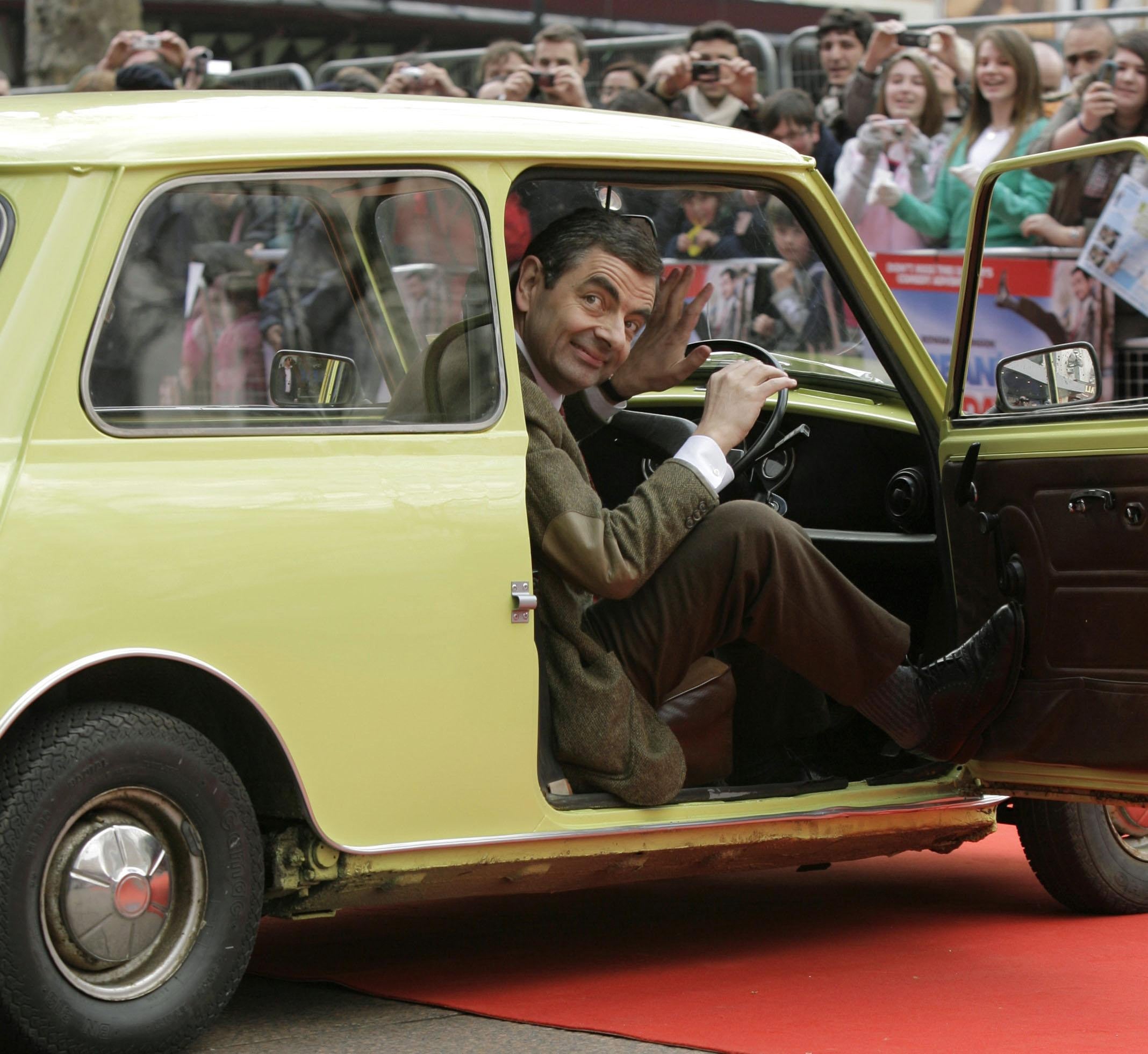Listen to green Mr Bean: Rowan Atkinson’s talking sense about electric cars
Given he’s a trained engineer as well as a brilliant entertainer, when the Blackadder star says he feels ‘duped’ by electric vehicles, we should listen, writes Sean O’Grady


All things considered, it’s just as well that it’s Rowan Atkinson, rather than, say, Jeremy Clarkson, who has cast a sceptical eye over the case for the electric car. Atkinson is, after all, a trained engineer as well as a brilliant entertainer, chooses his words carefully, and is universally appreciated. Jezza is far easier to dismiss.
More to the point, Atkinson is right. Just because a car is driven entirely by battery power, and thus doesn’t belch out tailpipe CO2 or any other emission, doesn’t necessarily mean it’s always going to be the greenest method of personal transportation.
The point Atkinson makes is a perfectly fair one: that a proper environmental accounting has to take in what you might call the total “well to wheel” factors in using a car with any new technologies – biofuels, synthetic fuels, the hydrogen fuel cell, solid-state battery electric vehicles and so on.
In the case of electric cars, we thus have to factor in the environmental costs of mining for the materials that go into battery packs, and the type of energy used to manufacture them (renewable or fossil fuels). Electric cars might use more energy to produce, but they use less over their lifetime.
I’ve always worked on the broad assumption that any battery electric car will be greener than any powered by petrol or diesel once a certain mileage is met (so a very small and economical city car that sips fuel will hold up better in environmental terms than a brand new, three-tonne, battery-powered behemoth of an SUV). The last time I looked, the “breakeven” comes at about 70,000 miles for a smaller hatchback. Fine. But battery power isn’t the only technology available if you want to go green, anyway.
It might be suitable for, say, larger family transport, but not for lorries or aircraft. The hydrogen fuel cell also has potential. Arguably, so do biofuels and synthetic fuels.
Indeed, it’s not outrageous to think that smaller, lighter hybrid petrol cars, now so advanced in their engineering, might also form part of the solution too. Let a thousand flowers bloom, in other words, just as they did at the dawn of the age of the motor car, when electric vehicles vied successfully with the internal combustion engine for a time. There were even some steam-powered options.
Like so many other debates about science, economics and engineering, which can be distorted by vested interests and personal prejudice, what we really need is a policy that is driven much more by the facts than by a kind of techno-ideology. At the moment, all the emphasis and industry investment is on battery vehicles, and the results are very impressive, in terms of their range, performance and cost.
Yet the exploration of other solutions is stymied, because most of the UK and Europe is faced with a hard deadline to end the sale of new cars powered only by petrol or diesel by 2030, with hybrids gone by 2035. You will still be able to drive an older petrol or diesel car. But for how long? Taxation and prohibitive congestion charges might be used to force people to scrap their perfectly serviceable older vehicles and buy new battery electric models, while using the older cars for longer might actually be the greener option.
Besides all that, there have to be grave doubts as to whether banning new petrol and diesel models in 2030, and hybrids in 2035, is actually feasible – for three reasons. First is cost: a battery electric car may be very good, but it will be around £10,000 more expensive than its petrol equivalent. Second, battery power works better in larger models, so small (cheaper) cars will start to disappear as a market segment. Third, the charging infrastructure isn’t complete, and crucially, people who live in flats and terraced houses have no practical method to charge inexpensively at home overnight, which is the best way to make an electric car make financial sense. Frankly, I can’t see the 2030 deadline sticking, and the EU has already weakened it, albeit in a minor way.
We are about to revolutionise the auto industry and personal transportation without any officially sanctioned and universally accepted way of calculating the total environmental impact of the various technologies.
The switch to electric will also mean the end of mass motoring as we have known it over the past few decades, because not many can afford the £30,000 or so it takes to purchase, say, a new electric Vauxhall Corsa, and second-hand electrics will be correspondingly out of the reach of many (and not always suitable). The world in which a family can get themselves a safe, reliable and roomy used car that’s still cheap to run and has years of service left in it for a few thousand pounds is soon to disappear, for ever. I can’t help feeling that, as the 2030/2035 deadlines loom, an awful lot of people, usually well disposed to the idea of halting climate change, will think “I never voted for this” and react rather badly.
With no new petrol or diesel cars coming to the market, the value of the existing ones will shoot up, rendering them unaffordable. What will happen then? The “war on the motorist”, as it’s sometimes emotively called, is only just beginning – and Atkinson, like Captain Blackadder, is one of the first to go over the top.
Join our commenting forum
Join thought-provoking conversations, follow other Independent readers and see their replies
Comments





Bookmark popover
Removed from bookmarks